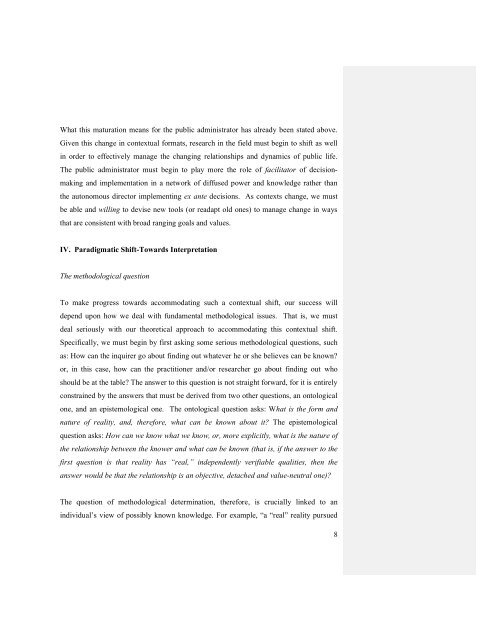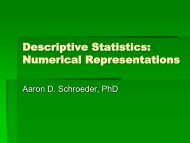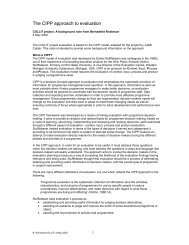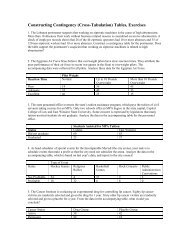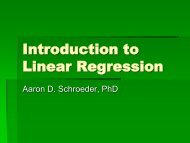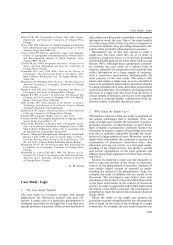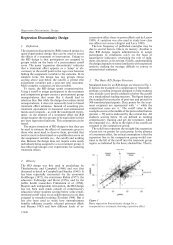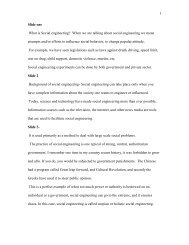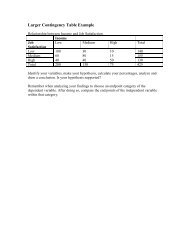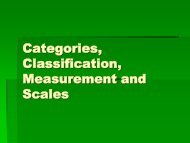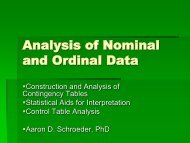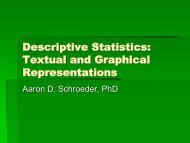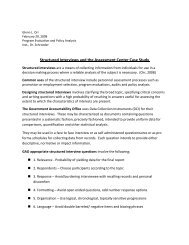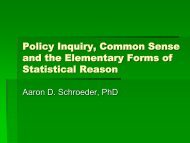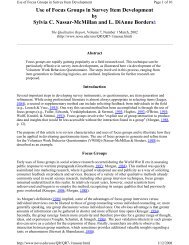The Problem
The Problem
The Problem
Create successful ePaper yourself
Turn your PDF publications into a flip-book with our unique Google optimized e-Paper software.
What this maturation means for the public administrator has already been stated above.<br />
Given this change in contextual formats, research in the field must begin to shift as well<br />
in order to effectively manage the changing relationships and dynamics of public life.<br />
<strong>The</strong> public administrator must begin to play more the role of facilitator of decisionmaking<br />
and implementation in a network of diffused power and knowledge rather than<br />
the autonomous director implementing ex ante decisions. As contexts change, we must<br />
be able and willing to devise new tools (or readapt old ones) to manage change in ways<br />
that are consistent with broad ranging goals and values.<br />
IV. Paradigmatic Shift-Towards Interpretation<br />
<strong>The</strong> methodological question<br />
To make progress towards accommodating such a contextual shift, our success will<br />
depend upon how we deal with fundamental methodological issues. That is, we must<br />
deal seriously with our theoretical approach to accommodating this contextual shift.<br />
Specifically, we must begin by first asking some serious methodological questions, such<br />
as: How can the inquirer go about finding out whatever he or she believes can be known?<br />
or, in this case, how can the practitioner and/or researcher go about finding out who<br />
should be at the table? <strong>The</strong> answer to this question is not straight forward, for it is entirely<br />
constrained by the answers that must be derived from two other questions, an ontological<br />
one, and an epistemological one. <strong>The</strong> ontological question asks: What is the form and<br />
nature of reality, and, therefore, what can be known about it? <strong>The</strong> epistemological<br />
question asks: How can we know what we know, or, more explicitly, what is the nature of<br />
the relationship between the knower and what can be known (that is, if the answer to the<br />
first question is that reality has “real,” independently verifiable qualities, then the<br />
answer would be that the relationship is an objective, detached and value-neutral one)?<br />
<strong>The</strong> question of methodological determination, therefore, is crucially linked to an<br />
individual’s view of possibly known knowledge. For example, “a “real” reality pursued<br />
8


